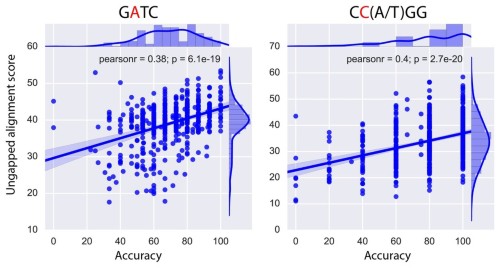
The following primary rabbit polyclonal antibodies were used: anti-EGFR (Upstate), anti-phospho-ERK1/2 and anti-ERK1/2 (CST), anti-FLAG (Stratagene), anti-STAM1 (Santa Cruz), and anti-TSG101 (Abcam). Rat monoclonal anti-CXCR4 antibody was purchased from BD Biosciences. The following primary mouse monoclonal antibodies were used for Western blot analysis and immunofluorescence: anti-HA (Covance), anti-Myc (CST or Santa Cruz), anti-β-Actin, and anti-FLAG (Sigma), anti-EGFR-528 (Santa Cruz), anti-TSG101 (Abcam), anti-EEA1 (BD Biosciences), and anti-CD63 and anti-LAMP1 (Developmental Studies Hybridoma Bank, University of Iowa). All graphical representations were generated using DeltaGraph 7.5.5 software. All reported quantification is based on the number of independent experiments specified in the corresponding figure legends, with error bars representing S.D. Contrast enhancement was used only to aide visualization of endogenous USP8 bands. Final image processing was performed in Adobe Photoshop CS3 and was limited to brightness enhancement and cropping. Western blots were visualized with LI-COR Odyssey Infrared imager and band intensities were quantified using Odyssey 3.0 software. MATERIALS AND METHODS Expression Constructs and DNA Manipulation Our findings therefore demonstrate functional cooperation between USP8, AIP4, and the ESCRT-0 machinery in shaping receptor progression through the sorting endosome. Furthermore, inactivation of USP8 bound to the ESCRT-0 complex exhibits colocalization with high ubiquitin content on disordered endosomes marked by Hrs and perturbs the early-to-late endosomal transition, resulting in impairment of CXCR4 trafficking. Catalytic activity of USP8 opposes that of AIP4 in the regulation of ESCRT-0 ubiquitination status and is essential for the maintenance of sorting endosome integrity. Contrary to the effects of USP8 inactivation on EGFR, we find that USP8 loss-of-function leads to diminished CXCR4 turnover and induces receptor accumulation on enlarged Hrs-positive early endosomes. To probe whether USP8 may indirectly promote receptor degradation through its regulation of the ESCRT-0 machinery, the present study explores the role of USP8 in CXCR4 trafficking and offers novel insights into the regulation of ubiquitin-mediated events at the sorting endosome. Collectively, our findings demonstrate a functional cooperation between USP8, AIP4, and the ESCRT-0 machinery at the early sorting phase of CXCR4 and underscore the versatility of USP8 in shaping trafficking events at the early-to-late endosome transition. USP8 functionally opposes the ubiquitin ligase AIP4 with respect to ESCRT-0 ubiquitination, thereby promoting trafficking of CXCR4. Perturbation in CXCR4 trafficking, resulting from USP8 inactivation, occurs at the ESCRT-0 checkpoint, and catalytic mutation of USP8 specifically targeted to the ESCRT-0 complex impairs the spatial and temporal organization of the sorting endosome. In the presence of ligand, diminished CXCR4 turnover is accompanied by receptor accumulation on enlarged early endosomes and leads to enhancement of phospho-ERK signaling. Contrary to the effects of USP8 loss on enhanced green fluorescent protein, we find that USP8 depletion stabilizes CXCR4 on the cell surface and attenuates receptor degradation without affecting its ubiquitination status. The present study explores an indirect role for USP8 in cargo trafficking through its regulation of the chemokine receptor 4 (CXCR4). Ubiquitin-specific protease 8 (USP8) has previously been implicated in endocytosis of several receptors by virtue of their deubiquitination. Reversible ubiquitination orchestrated by the opposition of ubiquitin ligases and deubiquitinating enzymes mediates endocytic trafficking of cell surface receptors for lysosomal degradation.

Glycobiology and Extracellular Matrices.


 0 kommentar(er)
0 kommentar(er)
